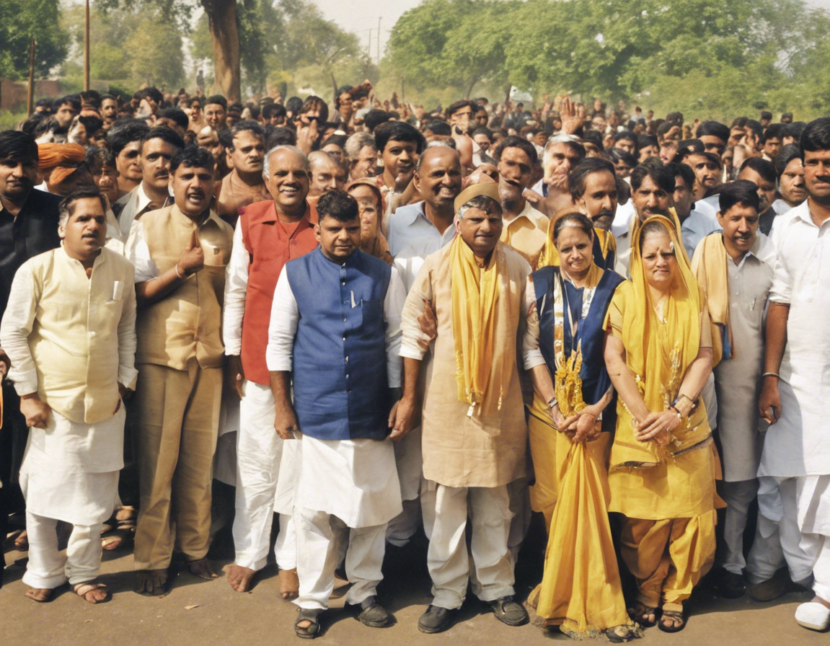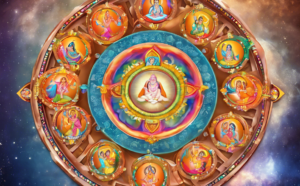The Bahujan Samaj Party (BSP) is an influential political party in India with a significant presence, particularly in the states of Uttar Pradesh, Punjab, Madhya Pradesh, and Uttarakhand. Founded by Kanshi Ram in 1984 and led by Mayawati, the party has been instrumental in advocating for the rights and empowerment of the Dalits, Scheduled Castes, and other marginalized communities in the country. The term “Bahujan” itself means the majority, encompassing the Dalits, Scheduled Castes, Scheduled Tribes, Other Backward Classes, and religious minorities, highlighting the party’s commitment to social justice and equality.
History
The BSP was formed with the aim of providing a political platform to the marginalized sections of Indian society who were historically oppressed and discriminated against. Kanshi Ram, the founder, envisioned a party that would challenge the existing caste-based hierarchy and work towards creating a more inclusive and equitable society. The BSP gained prominence in the late 1980s and early 1990s, consolidating support among Dalits and other marginalized communities who saw it as a vehicle for their empowerment.
Ideology
The BSP’s ideology is grounded in the principles of social justice, equality, and empowerment of the marginalized sections of society. The party has consistently advocated for affirmative action policies, reservations in education and jobs, and other measures aimed at improving the socio-economic status of Dalits, Scheduled Castes, and other disadvantaged groups. Unlike many other political parties in India that are marked by dynastic politics, the BSP has positioned itself as a party that is truly representative of the interests of the Bahujan Samaj.
Electoral Performance
The BSP has had significant electoral success in Uttar Pradesh, where it has formed the government multiple times. Mayawati, a charismatic leader and a four-time Chief Minister of Uttar Pradesh, has played a pivotal role in the party’s electoral fortunes. The BSP has also won seats in other states and has been a key player in coalition governments at the national level. The party’s strong focus on social justice issues and its ability to mobilize support among marginalized communities have been key factors in its electoral performance.
Challenges and Criticisms
Despite its successes, the BSP has faced challenges and criticisms, including allegations of corruption, dynastic politics, and opportunistic alliances with other political parties. Critics have also pointed to the party’s over-reliance on identity politics and its failure to effectively address issues of governance and development. The BSP has also been accused of promoting a cult of personality around its leadership, particularly Mayawati, which has sometimes overshadowed its ideological commitments.
Role in Indian Politics
The BSP’s role in Indian politics has been significant, particularly in challenging traditional power structures dominated by upper-caste elites. The party has been at the forefront of advocating for the rights of marginalized communities and has provided a platform for their political representation. The BSP’s presence has forced other political parties to take issues of social justice and inclusivity more seriously and has influenced the policy agenda at both the state and national levels.
Future Prospects
As India continues to grapple with issues of social inequality, discrimination, and marginalization, the BSP is likely to remain a key player in the country’s political landscape. The party’s focus on social justice and empowerment resonates with millions of marginalized citizens, and its ability to mobilize support among these groups gives it a unique position in Indian politics. However, the BSP will need to address internal challenges, such as leadership succession and organizational strength, to effectively capitalize on its electoral potential.
FAQs
-
What does the term Bahujan Samaj mean?
The term Bahujan Samaj refers to the majority of the population, including Dalits, Scheduled Castes, Scheduled Tribes, Other Backward Classes, and religious minorities in India. The Bahujan Samaj Party (BSP) is committed to representing the interests of these marginalized communities. -
Who founded the Bahujan Samaj Party?
The BSP was founded by Kanshi Ram in 1984 with the aim of providing a political platform for the empowerment of Dalits and other marginalized sections of Indian society. -
What is the BSP’s ideology?
The BSP’s ideology is grounded in principles of social justice, equality, and empowerment of marginalized communities through affirmative action policies and other measures aimed at their upliftment. -
Where does the BSP have a strong electoral presence?
The BSP has a strong electoral presence in states like Uttar Pradesh, Punjab, Madhya Pradesh, and Uttarakhand, where it has won seats in state assemblies and played a key role in coalition governments. -
What are some criticisms of the BSP?
Critics have raised concerns about issues such as corruption, dynastic politics, over-reliance on identity politics, and failure to address governance and development issues effectively within the BSP. -
Who is Mayawati and what has been her role in the BSP?
Mayawati is a prominent leader of the BSP and a four-time Chief Minister of Uttar Pradesh. She has been instrumental in shaping the party’s electoral strategy and advocating for the rights of marginalized communities. -
How has the BSP influenced Indian politics?
The BSP has been instrumental in challenging traditional power structures dominated by upper-caste elites and advocating for the political representation of marginalized communities, thereby influencing the policy agenda at both state and national levels.





